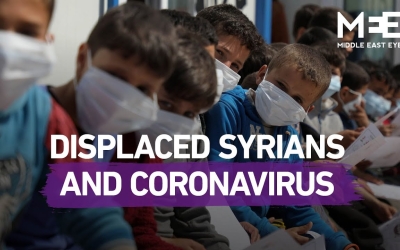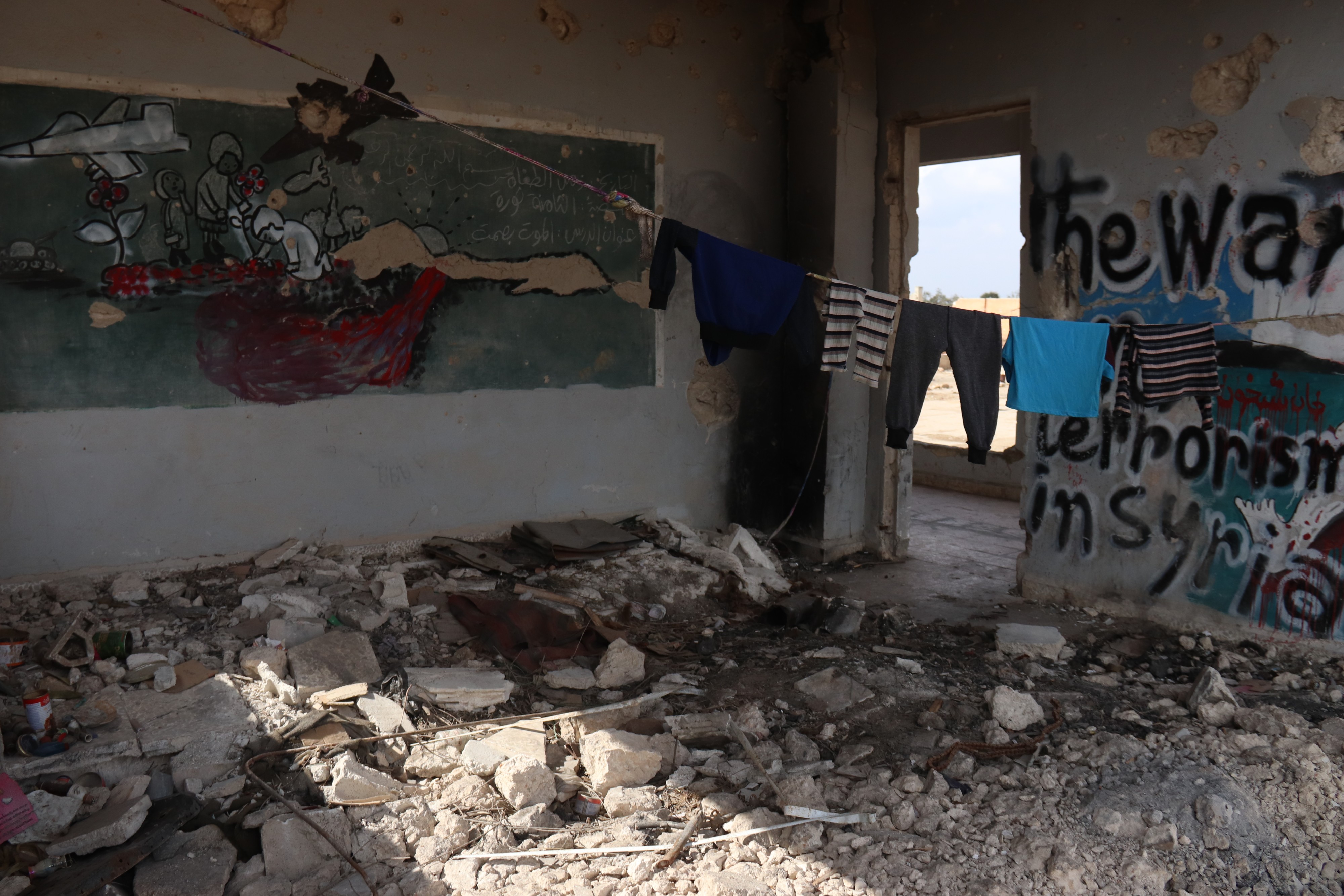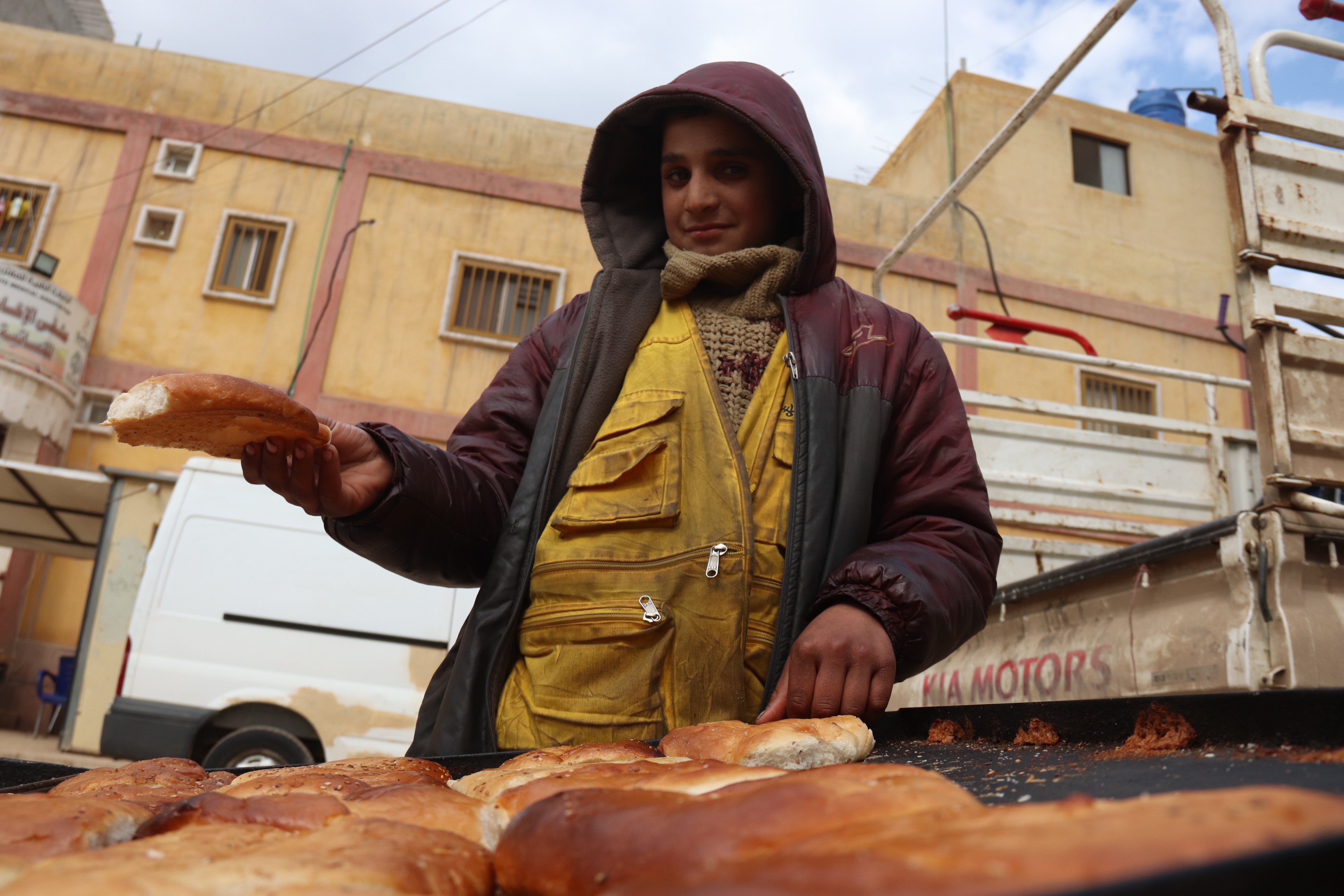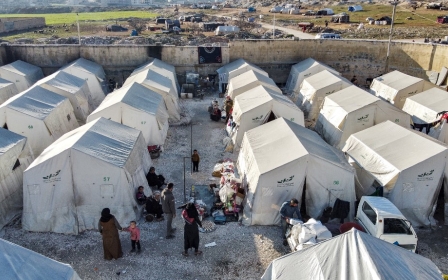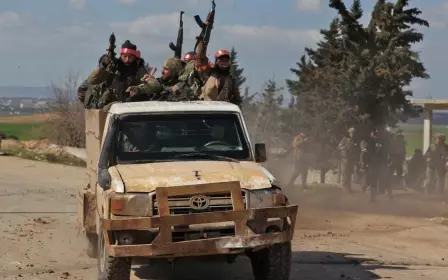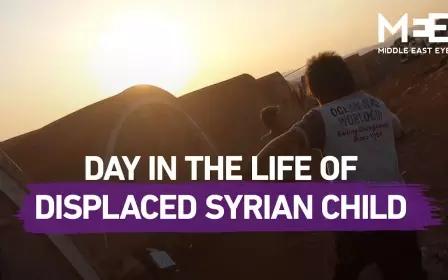Syrian children in Idlib work to feed families after bombs end their schooling
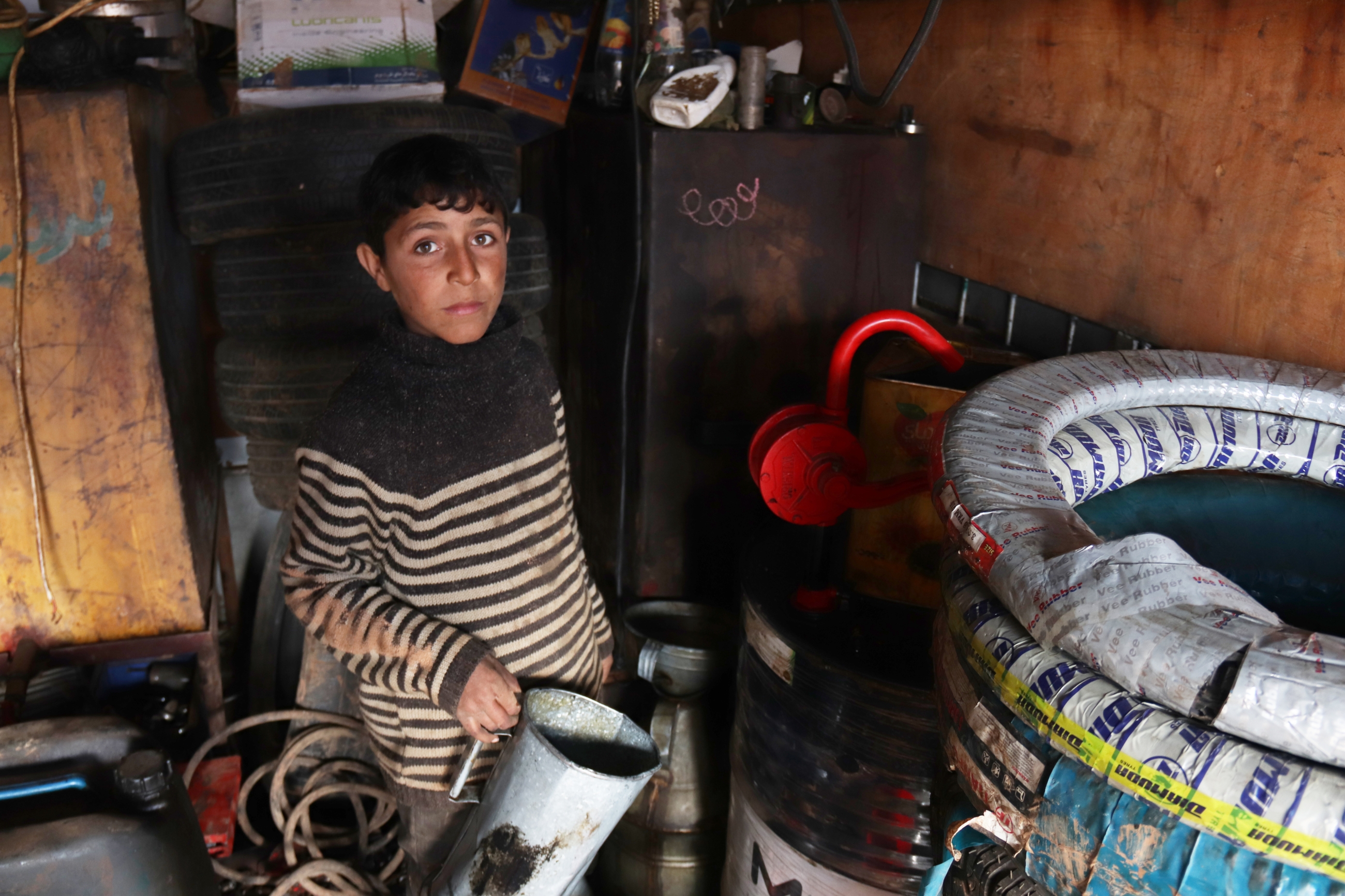
Twelve years old and living in a makeshift tent near the border with Turkey, Mustafa dreams of attending school.
That dream is on hold for now.
Seven months ago, he packed his belongings and left his hometown in rural Aleppo province along with his parents and three siblings as Syrian and Russian bombing encroached upon them, making remaining there untenable.
'It’s really upsetting when I see something in writing and I can’t read it'
- Mustafa, 12
The family of six now live in a small displacement camp near the town of Sarmada, in northern Idlib province.
Now they are relatively safe from the bombs that forced them away, though they have few supplies to keep themselves warm and fed. And for Mustafa and his siblings, there are no nearby schools to learn how to read and write.
They are among more than a million people seeking shelter in a sprawl of makeshift camps dotting rural northern Idlib amid a massive campaign by pro-government forces to retake Syria’s rebel-held northwest.
Nearly a million alone have arrived in this rural stretch of borderland since December, and more than half of them are girls and boys, according to the UN and aid agencies.
A ceasefire negotiated by Turkey and Russia earlier this month saw a general decline in the bombings that have spurred residents to flee, but the situation for those now displaced in northwestern Syria’s camps remains dire.
For most, there is little to sustain a normal life in displacement. Aid response is strained due to the sheer size of the crisis, and a brutal winter left tents flooded and caked with mud as children reportedly died of cold and asphyxiation as their families heated their tents.
And now with Syria’s medical infrastructure in tatters, the country is at “very high risk” of seeing the spread of the coronavirus pandemic, the World Health Organisation warns, including among displaced people.
With few formal schools in displacement camps, many children are now left to help pick up the pieces by working outside their homes.
No other options
According to his family, there are no schools in Mustafa’s informal encampment outside Sarmada. Even if there were, he is unable to attend classes. As the oldest of his siblings, he has little choice but to work so his family can buy food, water and other basic necessities.
On a cold day in late February, Middle East Eye found Mustafa working at a run-down car repair workshop, where he was fixing a loose wheel. The work earns him 2,000 Syrian lira ($3.88) per week, he says.
Just 500 metres away, Mustafa’s family lives in their cramped tent. Inside, his father sits with metal pins in his leg due to injuries from an air strike on their hometown. The injuries prevent him from being able to work and earn money for his family to survive in the makeshift camp.
With no school available to them, Mustafa’s younger siblings simply spend their days playing, but they must do so outside, as the tent is too small for much more than eating and sleeping.
Due to the sheer scale of Idlib’s displacement crisis, it is virtually impossible to give an exact count of just how many children, like Mustafa, are working to support their families.
According to the latest estimate by UK-based aid agency Save the Children, some 280,000 children have seen their education “severely impacted” by the latest bout of violence.
And over the course of one day in late February, ten schools were bombed in Idlib, reportedly killing nine children. Dozens of others were injured. Amid the carnage, at least 217 schools in the northwest have been “damaged or abandoned” since December due to the bombing, the organisation said.
“In these conditions, it’s very difficult to track precise numbers [of children cut off from school],” says Ahmad Arafat, a local director for the Syrian aid organisation Hurras Network, which coordinates with Save the Children.
“There are some local education campaigns - even if simple - in the camps; so a small portion of children are attending those,” he said, but as more children have taken up shelter in the border camps in recent months, “more of them are working [outside the home]".
Home of the displaced
Long the destination of Syrians displaced from elsewhere in the country, Idlib province is now home to millions. Among them are people from parts of Aleppo, Homs, Damascus, and other formerly opposition-held areas now under the control of the Syrian government.
Only Idlib and parts of neighbouring rural Aleppo remain out of the government's hands. The northwestern area has been under attack since pro-government forces, backed by Russian air power, intensified an aerial and ground campaign there since late April last year.
More than 1,700 people have been killed in the onslaught, and dozens of medical facilities have been bombed out of service, spurring massive displacement towards the northern border with Turkey where the bombing was less frequent.
Hundreds of thousands of children now live among the threadbare tents and olive groves along the border, with few opportunities to attend school.
In Atma, a town about 14 kilometres north of Sarmada just along the border with Turkey, 14-year-old Muhammad hopes he can someday attend class. He dreams of becoming an architect, a career he tells MEE he’s admired “since I was little".
But Muhammad is the oldest of three brothers, two of whom are studying in informal schools in their camp. The family fled their hometown in northern Hama province four years ago, after Muhammad’s father was killed in an air strike.
Now a teenager, Muhammad is their sole breadwinner and does not attend school. Instead, he goes out into the streets each morning, selling traditional simmoun pastries to passersby. He earns about $1.94 per day, enough to buy groceries for dinner each night.
At the repair shop near Sarmada, Mustafa also says his biggest hope is to finally start school. He’s unsure when that may be with the ongoing fighting in parts of northwestern Syria.
Mustafa is still unable to read or write, he says. With the war now in its tenth year, most of his childhood has been marked by conflict and, now, displacement.
“It’s really upsetting when I see something in writing and I can’t read it.”
This article is available in French on Middle East Eye French edition.
Middle East Eye propose une couverture et une analyse indépendantes et incomparables du Moyen-Orient, de l’Afrique du Nord et d’autres régions du monde. Pour en savoir plus sur la reprise de ce contenu et les frais qui s’appliquent, veuillez remplir ce formulaire [en anglais]. Pour en savoir plus sur MEE, cliquez ici [en anglais].


